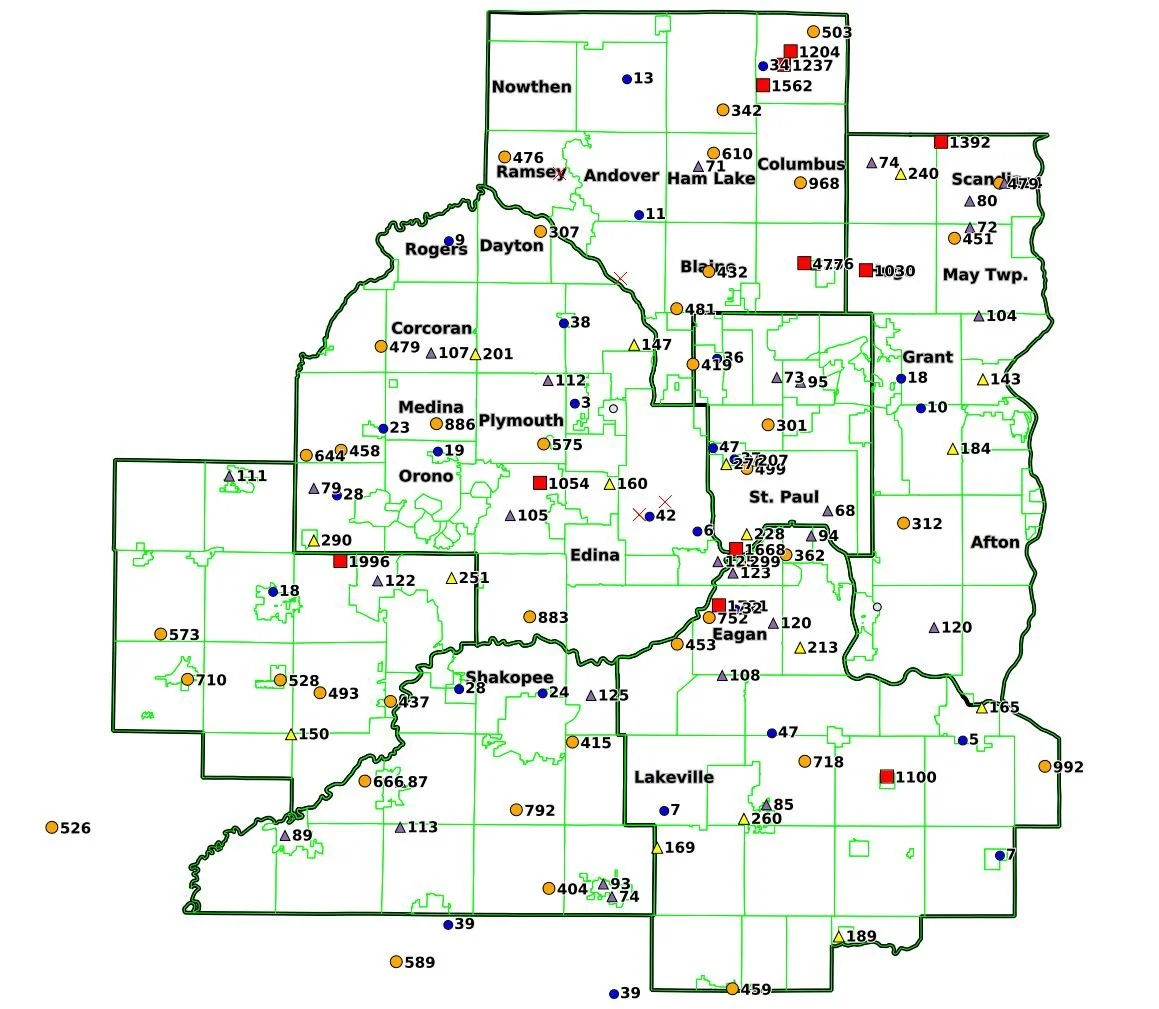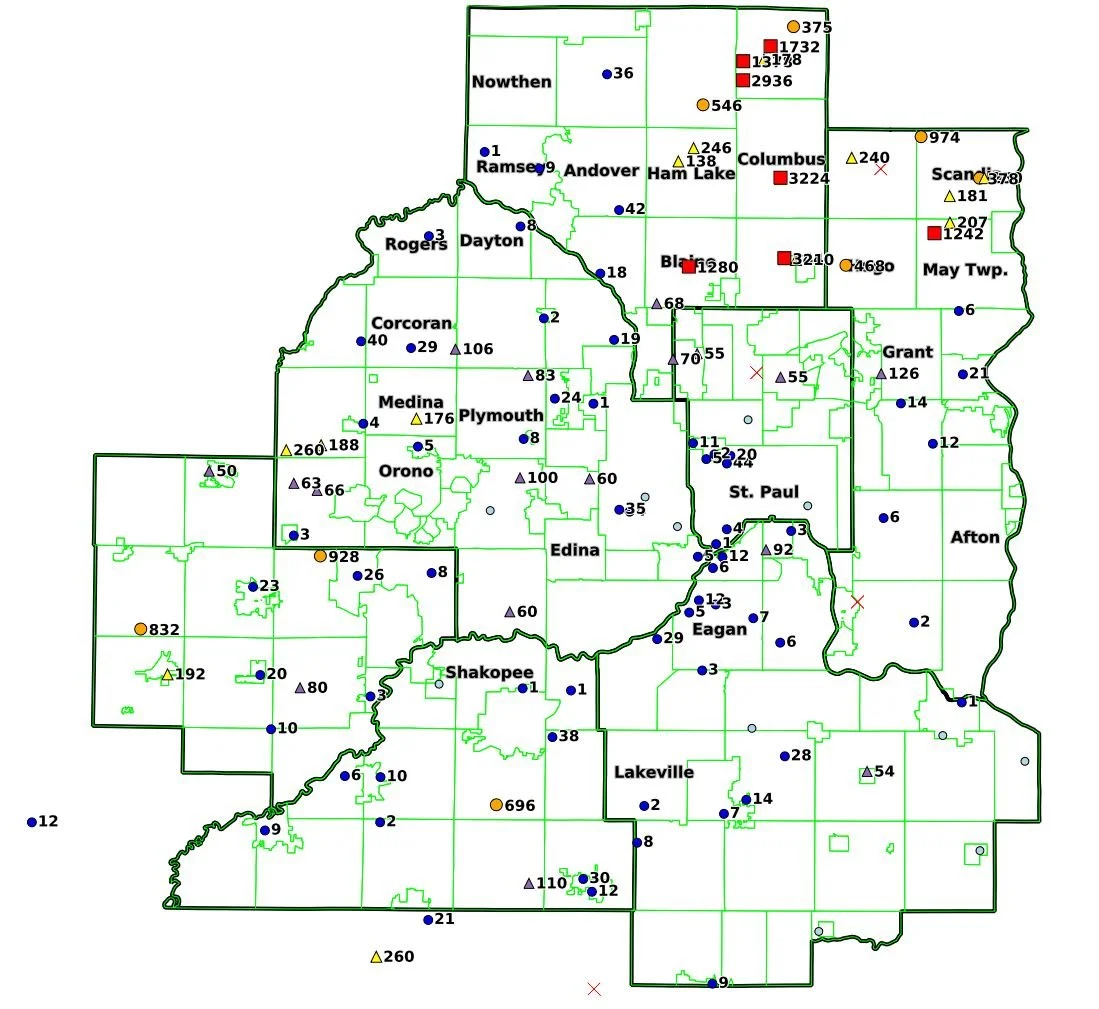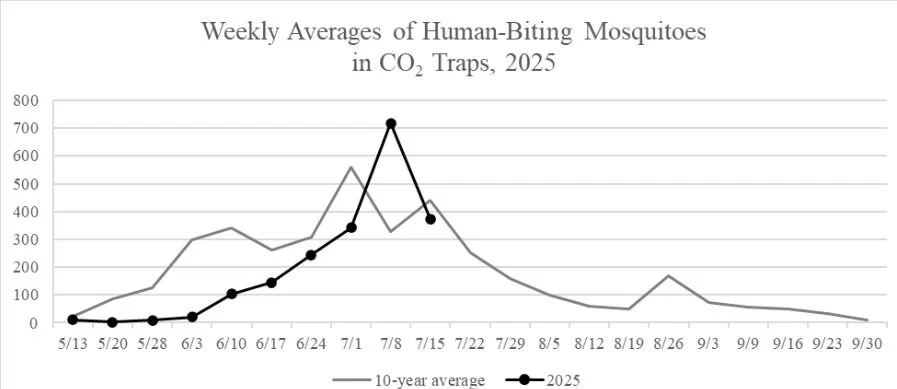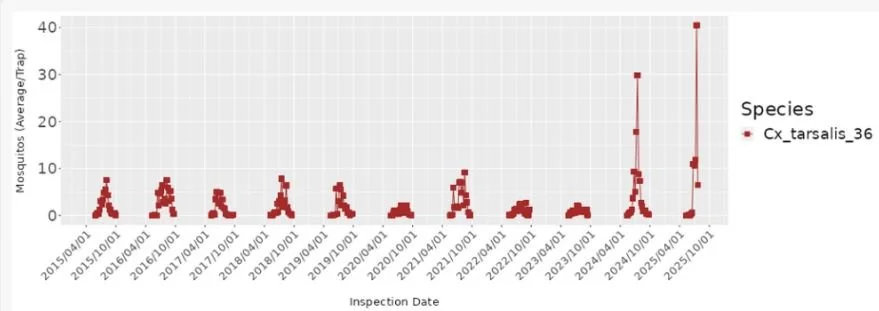West Nile Virus Detected in Mosquitoes Across All Seven Twin Cities Metro Counties
TWIN CITIES, MINNESOTA - Officials are sounding the alarm as mosquitoes across all seven Twin Cities metro counties have tested positive for West Nile virus (WNV), according to a recent update from the Metropolitan Mosquito Control District (MMCD). With unseasonably high mosquito activity and virus detection rates, the risk of infection is increasing earlier than usual this summer.
The MMCD Entomology Lab reports a significant uptick in Culex tarsalis mosquitoes, the primary species responsible for transmitting WNV to humans.
"These are some of the highest numbers we've recorded for Culex tarsalis at this time of year," said Dr. Jordan Mandli, MMCD Vector Ecologist. “The lab processed 187 mosquito pools last week. Of the 133 pools tested, 34 came back positive for West Nile virus—a positivity rate of over 25%. That’s more typical for late August.”
The MMCD states that despite a decrease below average in human-biting mosquitoes, you should not put the bug spray just yet.
According to the MMCD, when you look at the Y-axis on the graphs above, you see that the number of Culex mosquitoes (mosquitoes most responsible for the human transmission of West Nile) collected per trap are still well below how many cattail mosquitoes or other human-biting species they’ve collected, but the spike in the Culex mosquitoes as whole with their ability to transmit disease is concerning.
The graphs above and the maps below are from the MMCD’s July 15th Weekly Update.


The MMCD reports that the hot, humid conditions across Minnesota have contributed to ideal breeding conditions for mosquitoes, particularly those capable of spreading the virus. While most people infected with WNV show no symptoms, some may develop fever, headache, body aches, joint pain, vomiting, diarrhea, or rash. Severe cases can lead to neurological illness such as encephalitis or meningitis.
Public Health Advisory: Take These Precautions
With West Nile virus activity on the rise, MMCD and public officials are urging residents to take the following steps to reduce their risk of mosquito bites:
Use EPA-registered insect repellent when spending time outdoors.
Wear long sleeves and pants, preferably in light colors and loose-fitting styles.
Eliminate standing water in yards—this includes bird baths, buckets, planters, and clogged gutters.
Avoid outdoor activity during peak mosquito hours, typically around dawn and dusk.
Additional Resources:
The MMCD will continue to monitor mosquito populations and update the public as conditions evolve. In the meantime, residents are encouraged to stay informed and take the necessary steps to protect themselves and their families.
For more information, visit the Metropolitan Mosquito Control District website.
Written by: Will Wight



